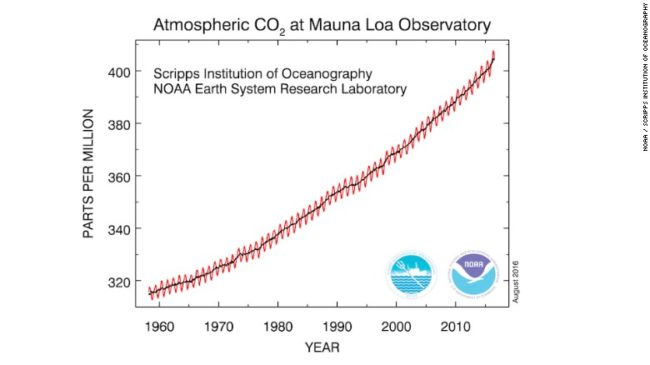 Once a view is adopted and embraced, is that it, or can humans break free?
Once a view is adopted and embraced, is that it, or can humans break free?
The answer is of course that people can and do break free from previous ideas and instead accept that they were once wrong. Generally however it does take time, and they also need to work it out for themselves.
Chad Myers
Back in 2010, Chad Myers the CNN weather guy was promoting Climate Change denial. Here he is live on air suggesting that Climate scientists are corrupted because they are being paid by the government. At that point he is not denying that the earth is warming, he is simply suggesting that they are wrong, so clearly he is dithering a bit even then.
not me. Moved to climate change in 2009.
— chad myers (@chadmyerscnn) August 23, 2016
… and Bill applauded …
Thanks to @chadmyerscnn for posting his reconsidered stance on climate change. Nicely done, sir!
— Bill Nye (@BillNye) August 25, 2016
Chad Myres this writes about his change of mind. (Link)
Below are a few snippets from his article (dated 25th Aug a few days ago) that might (or might not) temp you into reading it all …
… I write this article not to change your mind about global warming; I simply want to show you why I changed mine …
In 2009 an American Meteorological Society survey showed that only 24% of on-air meteorologists agreed with the statement, “Most of the warming since 1950 is VERY LIKELY human induced.” I did not agree because I did not like the term VERY LIKELY. I did not yet have the entire picture. I had not excluded all other possibilities. I wasn’t denying human-caused climate change, but I remained skeptical.
2010 was a turning point for me. That year was the hottest year on record, even though there was a La Niña present, a process that should have cooled the planet.
…Then in 2013 the CO2 concentration crossed 400 parts per million and I knew the globe was in trouble. No longer was I only concerned with ocean acidification, it seemed the ocean was not capable of absorbing the massive quantities of CO2 that humans were emitting. The plants were not absorbing CO2 fast enough through photosynthesis and converting it to oxygen.
…I was no longer a skeptic. Humans were polluting the atmosphere to a point of no return. I had finally excluded all other possibilities. Had I flip-flopped? Well, that is what it would be called in politics. But in science, it is just an evolution of understanding. I concluded that my original theory of “it could be something else” wasn’t likely the case.
One very important aspect that he spells out is this …
As I tell my 11-year-old, “It’s OK to be wrong as long as you learn from your mistakes.”
So let me put one question out there, are you prepared to be wrong?